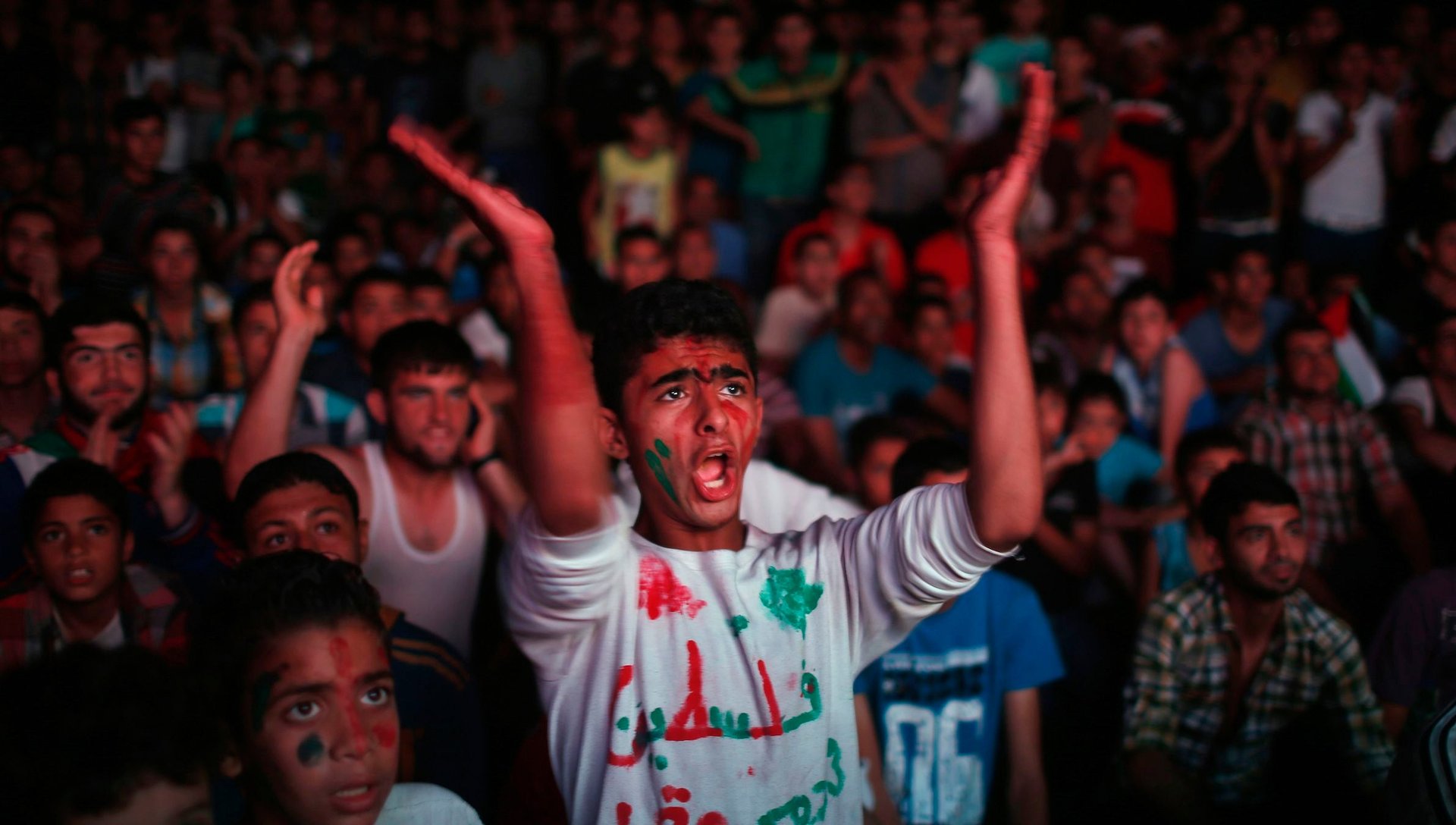Palestine is the best country at soccer that’s not officially a country
With days to go until the World Cup, the most-improved country at soccer isn’t going to be there—and isn’t a country, at least not a fully-fledged one.


With days to go until the World Cup, the most-improved country at soccer isn’t going to be there—and isn’t a country, at least not a fully-fledged one.
FIFA’s latest rankings released late last week showed Palestine up to 94th in the world, having moved up 71 places. That was on the back of four wins and one draw, which included victory over the Philippines in the final of the Asian Football Confederation’s Challenge Cup in the Maldives on May 30. The final was watched live by thousands in Ramallah and other Palestinian cities on giant screens set up in town squares and other public areas. Afterwards, the Palestinian Football Association president, General Jibril Rajoub, hailed the victory as “the best day ever in Palestine football history.” The victory will also see the Palestinians go to their first continental soccer tournament in January in Australia—if they can afford the costs of travelling there.
The Palestinian national soccer team is now at its highest-ever showing in the world rankings since it was officially recognized by FIFA in 1998, following the Oslo Accord with Israel and the formation of the Palestinian Authority. The team didn’t play a home match in the Palestinian territories for a further 10 years. Many players come from as far away as Chile and other parts of the Palestinian diaspora due to travel restrictions imposed by Israel on travel between itself and the West Bank and Gaza Strip.
Palestine became a ”non-member observer state” at the UN in 2012, which gives it access to certain UN bodies but not full voting status. Other unusual entities in the world rankings are Hong Kong (163rd), which is an autonomous region of China. There’s also South Sudan (185th), the world’s youngest country. Europe’s newest footballing member, the British Overseas Territory of Gibraltar, recently won first its ever game against Malta. The team of North Korea, which lost all of its matches in the 2010 World Cup, currently ranks 146.